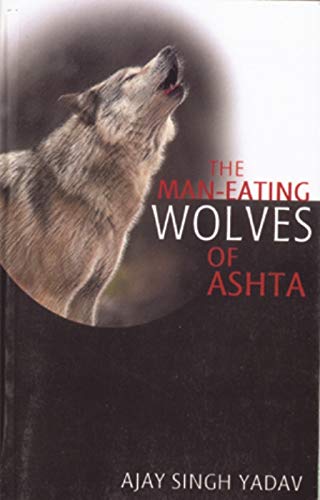Preface
The event narrated in this book, took place in the course of a busy career in the civil service. A civil servant’s career is a progression from one inconsequential thing to another, literally one damned thing after another. As a result, even if one has had the good fortune to have experienced something remarkable in the course of one’s work, it is soon obliterated by the daily preoccupation with the mundane. The events relating to the man eating wolves of Ashta, therefore lay in some corner of my mind, overlaid by a vast store of randomly acquired impressions and images, but never completely effaced by these later accretions. It was when I left the civil service, having become once more the master of my fate, that these memories, came up again to the surface of the mind of the mind from the obscure depths where they had lain so long dormant, and demanded to be put down on paper. The result is this book.
This is not however a straightforward shikar yarn on the lines of Jim Corbett's stories. Jim Corbett was not only a great shikari, he was also a master of the art of story telling. Everyone, who has tried his hand at writing a shikar story can not fail to be indebted to Corbett, just as anyone who tries his hand at drama, can not altogether ignore Shakespeare. If the reader finds many echoes of Corbett here, he can ascribe it therefore, not to any conscious imitation, but to the unconscious influence that a great figure in any field exerts on all those who come after him.
I say unconscious influence, because it is useless to imitate Corbett deliberately. Such a thing will soon be caught out as a bogus copy of the original. Corbett is unique and beyond imitation. There may have been geater shika1is than Corbett, though I doubt if anyone has ever displayed a profounder knowledge of jungle lore, there may have been better writers than Corbett though again I doubt if many have equalled his gift for lucid, forceful expression. But it is safe to asset that there has not been, and there never will be, a great shikati who was also a great master of English prose, greater than Corbett.
The story told in the following pages is, therefore, inevitably quite a different thing, form anything written by Corbett, or indeed from most of the tales one finds in the genre of the Shikar yarn. This is so, first of all, because I am no shikari. My perspective is that of the administrator, who had also, in the performance of his duty, to deal with a man eating animal. Had I been a shikari, the whole story would have had quite a different resonance, I suspect. On the other hand, I have tried to add one or twvo vignettes of district life, to give the reader an idea of the colour and texture of the life of a district officer. Whether they have come off, or otherwise, I leave the reader to judge.
I have tried to see if there are other books about man eating wolves, but have not come across any. Such books if indeed they exist, are not readily available. I did see a documentary about the man eating wolves of Pratapgarh, telecast by BBC, but that is the only time I have seen the subject discussed publicly .This book may therefore have some documentary value, and it is Just as well, at this stage to answer a question, which I fear, will be asked by many who read this book. This is the question of the truth of the events herein reported. Let me say for the record, that this is by and large a truthful chronicle. There are some things indeed, that have been retouched and highlighted for dramatic effect, but on the whole, whatever is here described, occurred as reported. Therefore my answer to this question would be the same as Mark Twain's : "there were some things in it that he stretched, but in the main he told the truth”.






